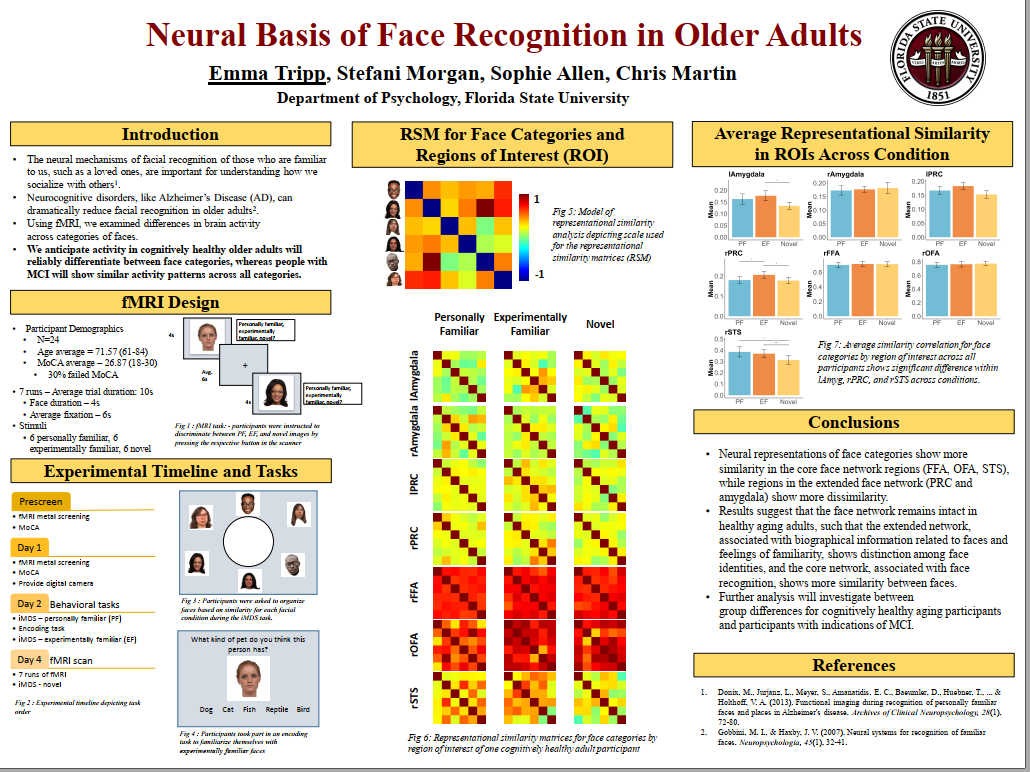Research Symposium
24th annual Undergraduate Research Symposium, April 3, 2024
Emma Tripp Poster Session 1: 9:30 am - 10:30 am /103

BIO
Emma Tripp is a third year behavioral neuroscience student at Florida State University. She joined the Martin Lab in the summer of 2023 and has been working closely with a grad student on research since. She plans to go to medical school after her undergraduate degree and continue research throughout her career.
Neural Basis of Face Recognition in Older Adults
Authors: Emma Tripp, Chris MartinStudent Major: Behavioral Neuroscience
Mentor: Chris Martin
Mentor's Department: Neuroscience Mentor's College: Arts and Sciences Co-Presenters:
Abstract
The ability to recognize a personally familiar face, such as a loved one, is a cognitive function used in everyday life. However, adults diagnosed with Alzheimer’s disease (AD) experience an impairment of this ability, which contributes to the negative impact AD has on quality of life. We used functional magnetic resonance imaging (fMRI) to characterize differences in neural activity related to face recognition in older adults with and without indications of mild cognitive impairment (MCI). Specifically, we examined differences in brain activity evoked by recognition of personally familiar (PF), experimentally familiar (EF), and novel (i.e., a stranger) faces. EF faces were learned in a series of lab-based encoding tasks. All participants were asked to discriminate between the three categories of faces (PF, EF, and novel) during functional neuroimaging. We hypothesized discernible differences in neural activity between the healthy and MCI adults for different face categories. Results revealed a differentiation for PF and EF faces in the medial parietal and medial temporal areas of the default mode network (DMN). This finding is aligned with the role of DMN in self-referential processing and the cognitive processes involved in person identity recognition. Further analyses will use a pattern-based similarity analysis to quantify representational change among recognition signals for the different faces. We anticipate that recognition in cognitively healthy older adults will be characterized by signals that reliably differentiates between face categories, whereas people with MCI will show a restricted representational space such that faces from all categories evoke similar activity patterns.
Keywords: face recognition, AD, older adults, memory


